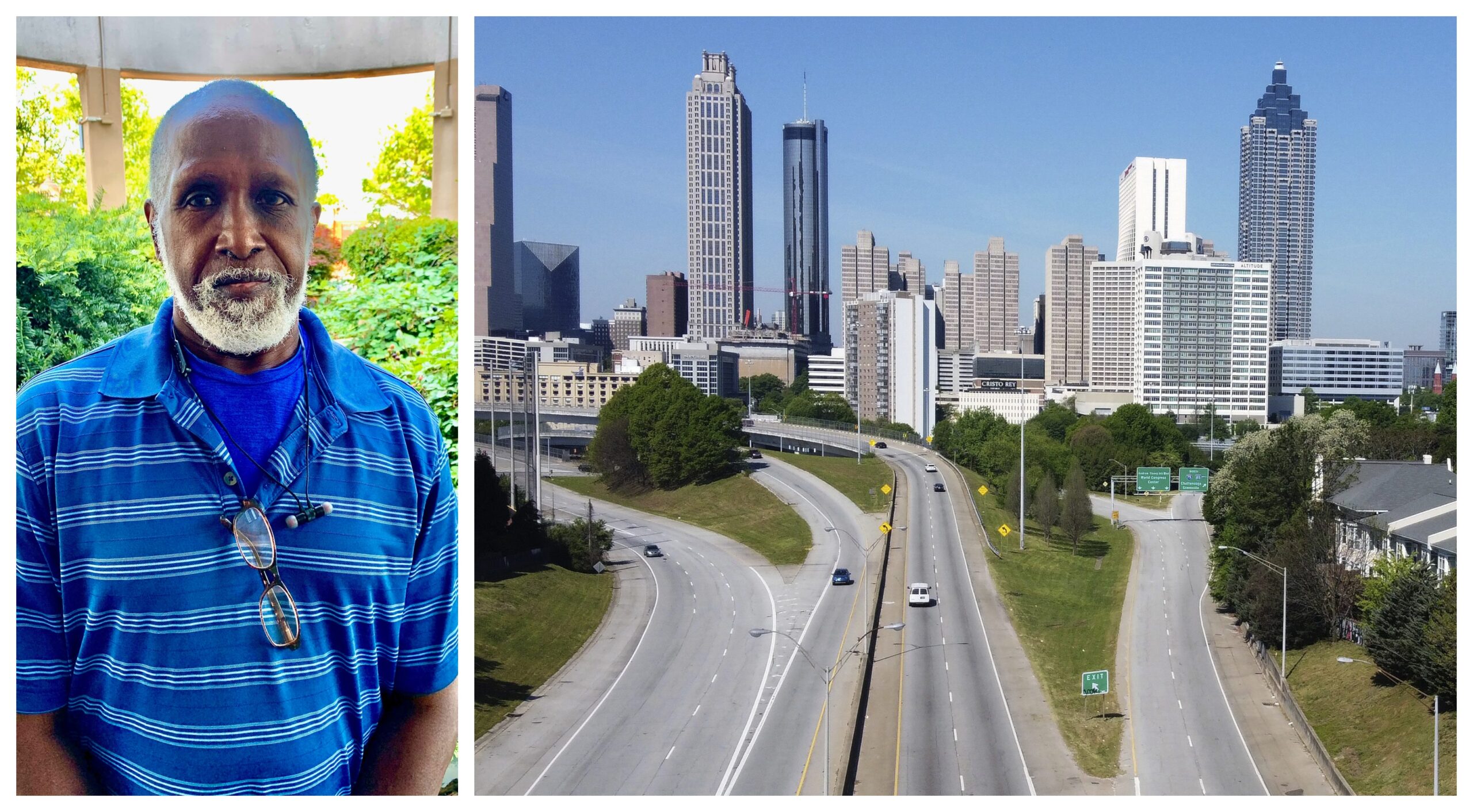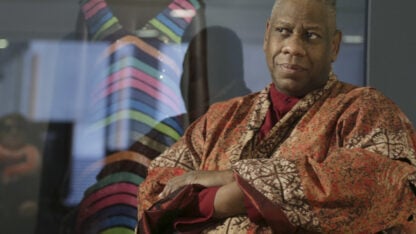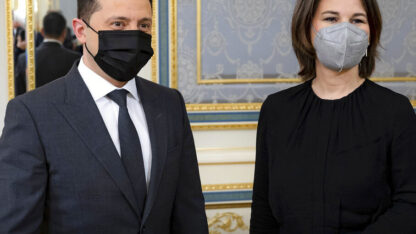From Atlanta’s Isolation Hotel, Patient Reflects On Life — And Near-Death — In His Hometown

LeRoy Glass, who calls himself a “Grady baby,” spent time recovering from COVID-19 at a downtown Atlanta hotel. While there in isolation, he spent time looking out his window and admiring how his hometown has grown.
Courtesy of LeRoy Glass (left); John Bazemore/Associated Press (right)
Those who get COVID-19 need to be quarantined. But that becomes a problem for people who don’t have housing to quarantine in — either because they were already homeless or because they lost their place when they became infected with the virus.
Recently, the city converted a downtown Atlanta hotel into an isolation center for people in these precarious living situations. One of the first patients to be discharged was 65-year-old LeRoy Glass, who recently recovered from the coronavirus.
In an interview with WABE, he described how his experience gave him another opportunity to live, after losing nearly his entire family, and appreciate the city where he was born and raised.
“I’m a Grady baby,” he said.
Glass is a retired maintenance man, a job his father held, too. He spent his early childhood in the Kirkwood neighborhood. The memories he describes from that period in the 1950s are good ones.
“Kirkwood was very family-oriented,” he said. “Families raised families. Families helped out families.”
Glass said his own family was strong, too. He was the youngest of eight children. The family lived in a house that his father kept up for the owner. He also worked as a janitor at a church in Inman Park.
But then life changed for the Glass family when his dad died suddenly. He had a stroke in front of the church that employed him. He was only 44.
After that, the family had to move to Center Hill on the west side of the city. Glass said the environment there wasn’t as friendly. Kids fought over territory. And over the years, his siblings also died — he said of natural causes.
“Out of eight of us, only three of us have made it to 50,” he said.
Then came the coronavirus outbreak when Glass himself nearly died.
He said he was leasing a room from a woman, doing some repairs around the house as part of his rent. She had cancer. So Glass said he took the virus seriously starting back in February.
“My mask and my gloves — I had all that on,” he said. “I had kept hand sanitizer in my pocket.”
Still, one day about a month ago, he felt sluggish. He didn’t have a fever, and he only had a mild cough that he figured was from allergies. But he did have diarrhea. So he went to Grady Memorial Hospital to figure out if something was wrong.
“That’s when they found out I was sick, and they put me in isolation,” Glass said.
As soon as he arrived, he got much worse. He said the health care workers took X-rays and then told him that there was some issue with his lungs — that they were collapsing.
And at that moment, Glass passed out. He said he didn’t know what was going on, that it was like a dream. He later learned that the sickness had cut off the oxygen to his brain.
“Basically if I hadn’t been at Grady at the time, I wouldn’t be here today,” Glass said. “I know the Lord just gave me another chance.”
After the hospital, Glass couldn’t return to his place — his landlord had cancer.
So the city brought him to the isolation hotel for people without housing. He said he felt like he was still at Grady. The staff checked in on him so much. But what he focuses on when describing his hotel room was the view.
“I had a beautiful view,” he said.
To see that view right there, I admired how the city has grown.
LeRoy Glass
He said he could see Centennial Park, the CNN Center and the Omni Hotel, and he remembered when much of the area was just railroad tracks. He thought about Atlanta, his hometown.
“I watched this city grow,” he said. “And to see that view right there, I admired how the city has grown.”
Glass stayed in the room two weeks until he was cleared to leave. Now he’s in another hotel the city set up for people who don’t have the virus but are either older than 65 or have an underlying health condition. He’s volunteering while he’s there.
Glass said he feels better but not the same. He said he still experiences shortness of breath. Asked what his plans are going forward, he said he hopes to move into senior housing.
“Just relax and take it easy and not overexert myself,” Glass said. “And if I can help others, I will.”








